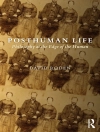Daddy Long Legs is a heartwarming and timeless coming-of-age novel that will leave readers enchanted. Written in the form of letters, this captivating story follows an orphan named Jerusha " Judy" Abbott as she navigates life, love, and her mysterious benefactor. Discover a tale filled with humor and the pursuit of dreams.* A heartwarming and inspiring story of a young orphan girl.* Offers valuable lessons about hard work, perseverance, and the power of education.* Explores themes of identity, self-discovery, and personal growth.* A must-read for fans of coming-of-age stories and classic literature.* A timeless piece of literature that has been enjoyed by readers for over a century.
Koop dit e-boek en ontvang er nog 1 GRATIS!
Taal Engels ● Formaat EPUB ● ISBN 9789358569452 ● Uitgeverij Prakash Books ● Gepubliceerd 2016 ● Downloadbare 3 keer ● Valuta EUR ● ID 9283862 ● Kopieerbeveiliging Adobe DRM
Vereist een DRM-compatibele e-boeklezer












